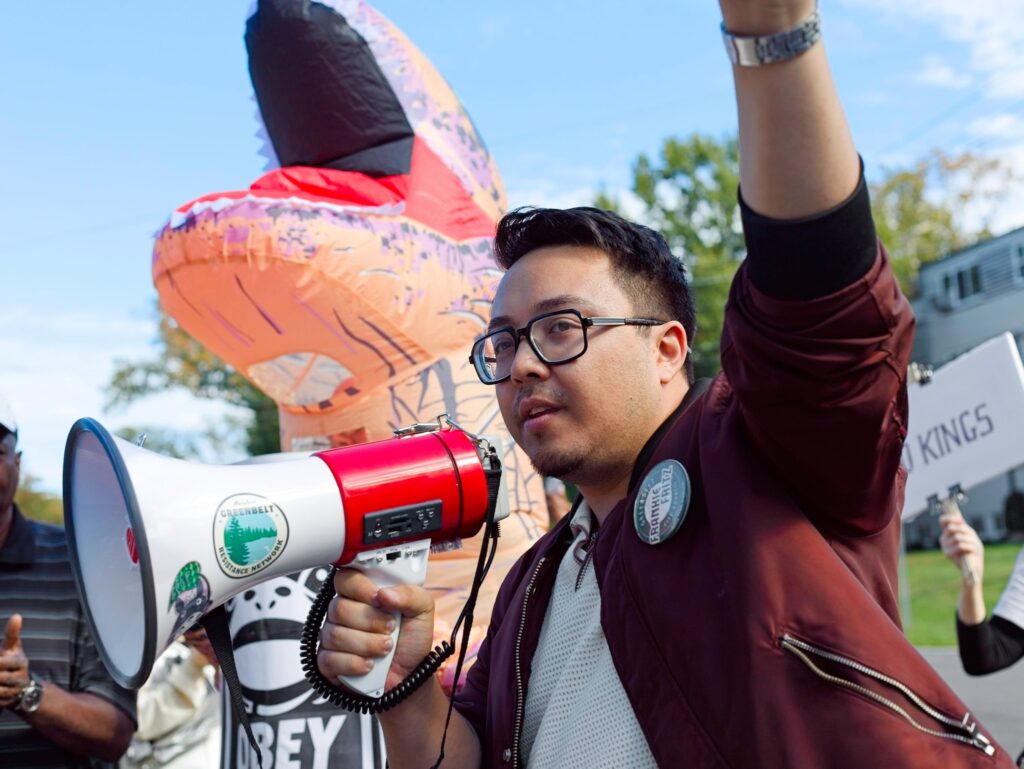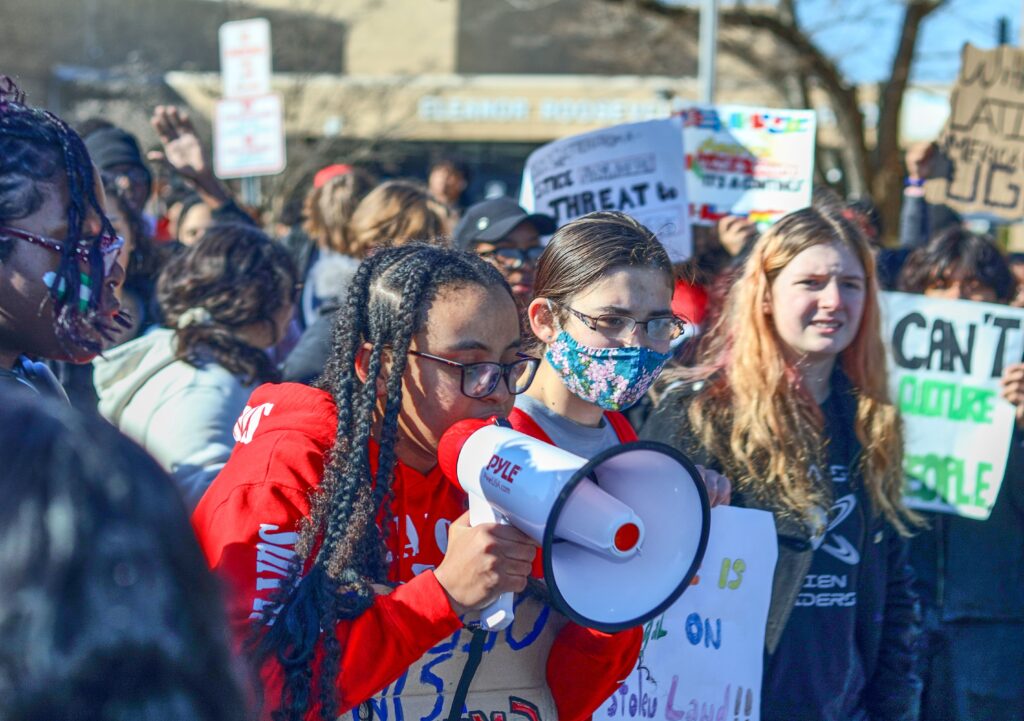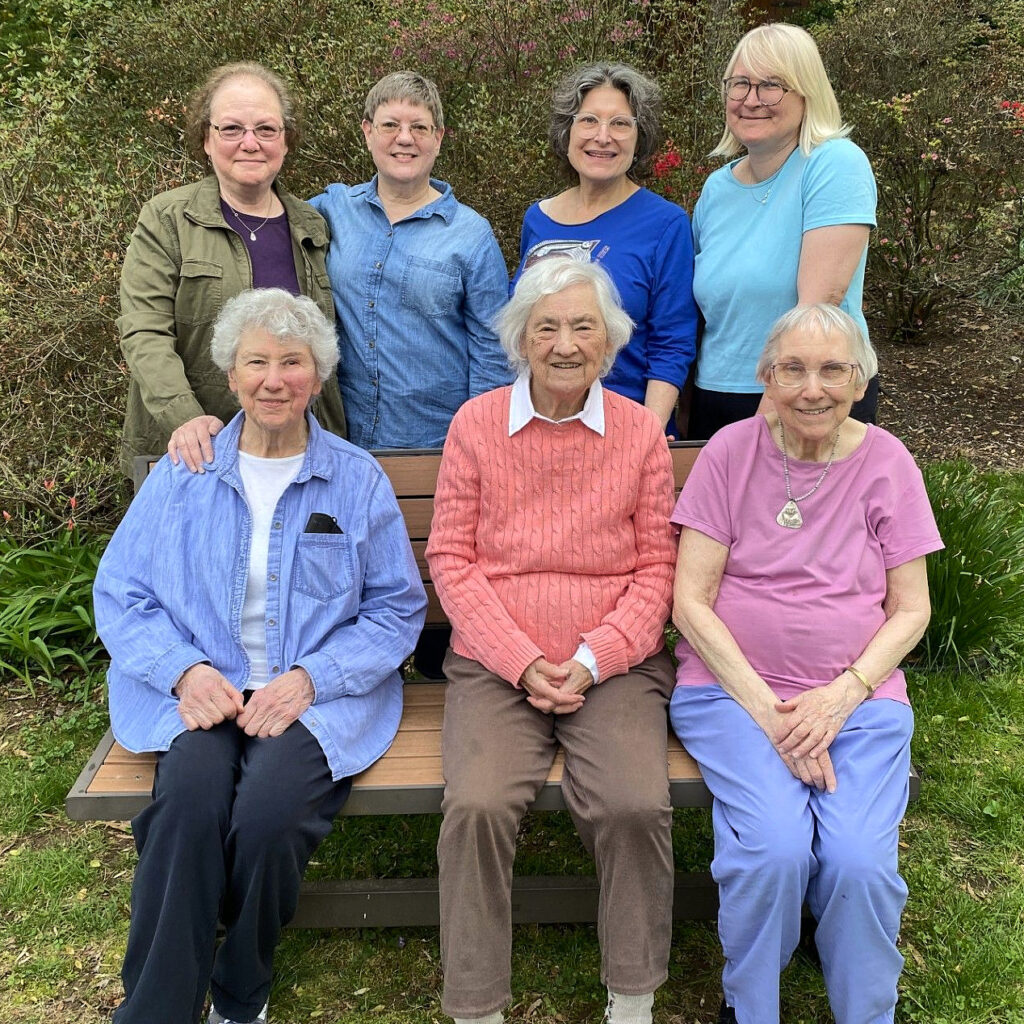For a newcomer, Frankie Fritz became a familiar face quickly. He was attending housing meetings, council meetings and voting-rights efforts within months of moving to Greenbelt. That steady involvement is part of what carried the 30-year-old organizer into his first term on the Greenbelt City Council.
Raised in New Jersey by his grandparents, a postal worker and a teaching assistant, Fritz said his interest in civic life started early. “I was always into history growing up, and I think that linked to being interested in politics,” he said. In high school, he joined Youth and Government and said events like Barack Obama’s 2008 election helped shape his early interest.
Books also played a role. Fritz said historian Howard Zinn’s A People’s History of the United States helped shape his understanding of politics as “the story of regular people fighting back against unjust systems.”
Fritz earned a bachelor’s degree in history with a minor in sustainability from George Washington University. After moving to Silver Spring in 2017, he became involved in housing organizing, including efforts focused on rent control. That work eventually led him to Greenbelt.
Move to Greenbelt
Fritz first learned about the city in 2019 while researching housing cooperatives. “I learned that the largest and oldest housing cooperative in Maryland was right at the end of the Green Line,” he said. “I was captivated by it.” He visited the Greenbelt Museum, studied the city’s New Deal-era history and found himself drawn to the community’s cooperative foundations.
He moved to Greenbelt in December 2023. “I was renting until I moved to Greenbelt, and I was tired of it,” he said. “I didn’t think I could afford anywhere in the DMV. Then I looked at Greenbelt, specifically GHI homes, and it was one of the few places I could afford to live in a values-aligned way.”
Shortly after arriving, Fritz became involved in the effort to expand all-resident voting rights, which would allow noncitizens to vote in city elections. It was one of the first issues that made him feel connected to civic life here. “In light of the national political climate, being in solidarity with and building power for our immigrant neighbors is really important,” he said.
Running for Office
Deciding to run for office came gradually. Fritz described the 2024 presidential election as a turning point that convinced him local organizing needed to deepen. “We really need to start organizing everywhere in this country, especially locally,” he said. “The city is a vehicle to do that.”
Although this was his first time running for office, Fritz had been active in Maryland politics for years. He served as field director for Montgomery County Executive Marc Elrich’s 2018 campaign and worked on ballot initiatives related to abortion rights and tax reform. “I’d asked so many of my friends to run. At some point, I realized that I had to step up and do it myself.”
Key Council Issues
Now on council, Fritz said he wants to make city government easier for people to engage with. He said many residents feel disconnected from city decision-making and hopes to meet people where they are through outreach, town halls and closer collaboration with community organizations. “We can’t just be in the city council building and expect that we’re going to have the best-informed decisions by waiting for people to come to us.”
Housing is one area where he said the city can take a more active role. He has criticized the county’s 6 percent rent increase cap, arguing that it does not reflect what families can realistically afford. “It’s an unsustainable expectation,” he said. “We need to do more to tie increases to the cost of living, because our minimum wage doesn’t go up by 6 percent every year … The city can do more to protect people as we work to build more housing and improve what we have.”
He said the same principle applies to workers. Fritz supports creating a path for municipal employees to unionize if they choose, saying the city should make sure “our workers know they are supported.”
Transit is another issue he hopes to address, pointing to challenges residents face moving between neighborhoods without a car. He wants the city to push for projects such as installing Capital BikeShare at the Greenbelt Metro Station and believes Greenbelt will benefit from shifting future development toward more walkable, transit-oriented connections. “If we re-orient our development away from the suburban highway model toward a transit-oriented model, [Greenbelt] could easily become the envy of the region.”
Fritz also wants to build on the momentum from the city’s recent election, which saw a notably higher turnout. He supports exploring universal vote-by-mail and other reforms that make it easier for residents to participate.
He describes his guiding philosophy as building “a Greenbelt for All,” which he said means affordability, inclusivity and giving residents a stronger voice in how the city sets priorities. One idea he hopes the city considers is participatory budgeting, where residents directly propose and vote on how portions of the budget are spent.
His campaign drew support from several county leaders and progressive organizations. “When Greenbelt does better, Prince George’s County does better and vice versa,” he said. He hopes to strengthen the city’s partnership with the county on housing, transit and economic development.
Looking ahead, Fritz said success in his first term would mean making visible improvements on the core issues he campaigned on. “People need to see progress,” he said. “Greenbelt is one of the best communities in the country to live in and I want to make it even better.”
Stephen Lotz is a University of Maryland student at the Philip Merrill College of Journalism writing for the Greenbelt News Review.



